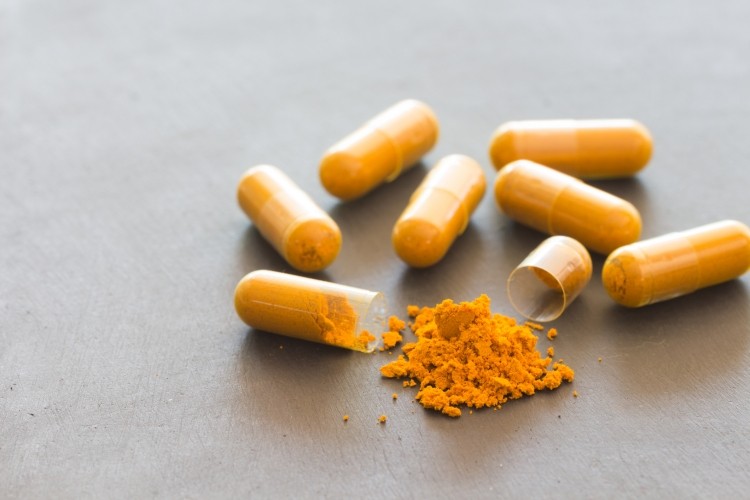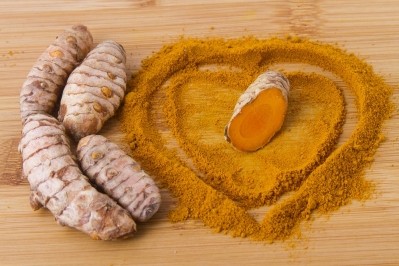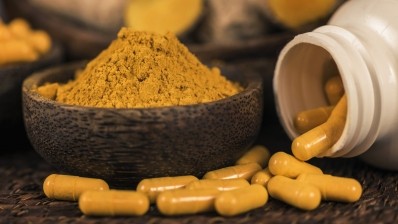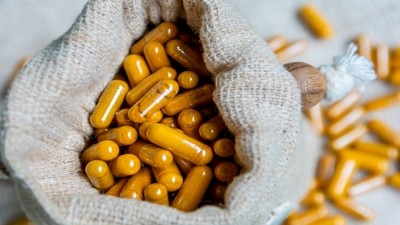‘A rare phenomenon’: Experts weigh in on DILIN data linking turmeric supplements to liver injury

Turmeric (Curcuma longa) boasts a long history of safe use as a culinary ingredient, and the botanical and the curcuminoids it contains (curcumin, demethoxycurcumin and bisdemethoxy curcumin) have been reported to have a range of health benefits, including brain, cardiovascular, joint, and muscle health.
As a result, the ingredient has become a star performer in the dietary supplements space, with domestic sales in excess of $135 million, according to the 2020 Herb Market Report published by the American Botanical Council (HerbalGram 131). Specifically, turmeric is the number three selling herb in the natural channel, with $41.5 million in sales. It is number four in the mass channel (MULO) with $96.97 million in sales.
However, turmeric-based food supplements recently hit the headlines in Europe recently when the Italian Ministry of Health announced restrictions around the use of health claims for the products and issued a new warning to be used on labels following reports of hepatitis cases.
French authorities are also investigating potential risks after reports of adverse liver events were reported there.
DILIN data
The core of the issue focuses on forms with enhanced bioavailability. Turmeric has limited solubility and absorption from the gut, and suppliers have worked to enhance the delivery of curcumin and its metabolites for supplements and functional foods, including nanoparticle and liposomal encapsulation approaches, or combining turmeric extracts with piperine, a proven bioavailability enhancer.
In the US, the Drug Induced Liver Injury Network (DILIN) recently reported ten cases of turmeric-associated liver injury since 2011, six of which occurred after 2017. Five of the cases resulted in hospitalization.
The researchers were able to obtain samples from seven products, all of which were tested and found to contain turmeric, according to data published in the American Journal of Medicine.
Genetic testing was also performed for all the cases, with seven of them found to carry HLA-B*35:01, a class I HLA allele that has previously been implicated in liver injury associated with green tea (Camellia sinensis), Garcinia cambogia, and Polygonum multiflorum.
“Liver injury due to turmeric appears to be increasing in the United States, perhaps reflecting usage patterns or increased combination with black pepper,” wrote the DILIN scientists. “Turmeric causes potentially severe liver injury that is typically hepatocellular, with a latency of 1 to 4 months and strong linkage to HLA-B*35:01.”
A rare phenomenon
Commenting independently on the new paper, adverse events expert Rick Kingston, PharmD, head of scientific and regulatory affairs for SafetyCall International, and a professor in the School of Pharmacy at the University of Minnesota, told NutraIngredients-USA: “The statement that turmeric associated liver disease is “a growing problem” is over sensationalizing the findings. In fact, 10 cases over 18 years is hardly an epidemic.
“What is important with this report is the fact that HLA gene mutation resulting in the presence of HLA-B*35:01, a class I HLA allele, may be playing a significant role in the few cases they have seen. The HLA-B*35:01 allele was also reported to be a potential risk factor for individuals consuming green tea (Camellia sinensis). This suggests that the few cases that have been reported are not only a rare phenomenon but essentially the result of inborn errors of metabolism in specific individuals.
“Fortunately, and as the authors state, rarely the liver injury can be severe and result in death,” added Dr Kingston. “The fact that the numbers of cases are so small, even for those with the HLA-B*35:01 allele, compared to market share for such products would further indicate a low risk profile. There may be other risk factors at play here as well.”
Synthetic curcumin
Other risk factors may be the presence of synthetic curcumin in products, according to Stefan Gafner, PhD, Chief Science Officer at the American Botanical Council.
Dr Gafner told us: “From what I remember from a 2019 presentation by Luca Bucchini, at least 50% of the products involved in the alleged turmeric extract hepatotoxicity case series in Italy contained synthetic curcumin rather than a turmeric extract, and also likely pure piperine rather than a pepper extract.”
This was confirmed by a later publication by Menniti-Ippolito et al. (Ann Ist Super Sanità, 2020), said Dr Gafner. This paper detailed the analysis of 18 products related to 16 Italian case reports and found that about 60% contained curcumin as the sole curcuminoid, hence of synthetic origin.
“These authors did not investigate if the other products were spiked/fortified with curcumin,” he added. “However, at least one case was linked to an established turmeric extract. In a follow-up investigation, the group of Guido Pauli at UIC analyzed one of the products allegedly causing liver injury (Kim et al. J. Nat. Prod. 2021), highlighting some of the quality issues with these products, but without finding any plausible explanation for the liver injury either.
“In many of these “turmeric extract” cases, I cannot but wonder what exactly was in these products. As I said earlier, a major portion of the products in the Italian case report series contain pure curcumin and pure piperine. I have not seen any analytical data from other case reports.
“Having said that, there is more and more data suggesting that “whatever is sold as turmeric extract” can lead to hepatotoxicity in sensitive people in very rare instances,” said Dr Gafner. “I don’t think we know anything about the mechanism of such hepatotoxicity but I suspect it may see a similar case to green tea extracts with high concentrations of epigallocatechin gallate.”
Dr Gafner noted that reports on potential hepatotoxicity associated with turmeric supplements have been increasing in both Europe and the US. “However, these case reports have to be put into the context of the huge number of turmeric products sold, so it seems as this is affecting only a small portion of the population,” he said.
“But I think that a link between curcumin intake and liver injury in some cases has to be considered likely, but also as a rare occurrence (Lombardi et al. Br J Clin Pharmacol. 2020).
“I still lament the industry’s use of the term “curcumin” for turmeric extracts or turmeric products. This leads to additional confusion in the literature between the extract and pure compound.”
Source: The American Journal of Medicine
Published online ahead of print, doi: 10.1016/j.amjmed.2022.09.026
“Liver Injury Associated with Turmeric–a Growing Problem: Ten Cases from the Drug-Induced Liver Injury Network [DILIN]”
Authors: D. Halegoua-DeMarzio et al.
















